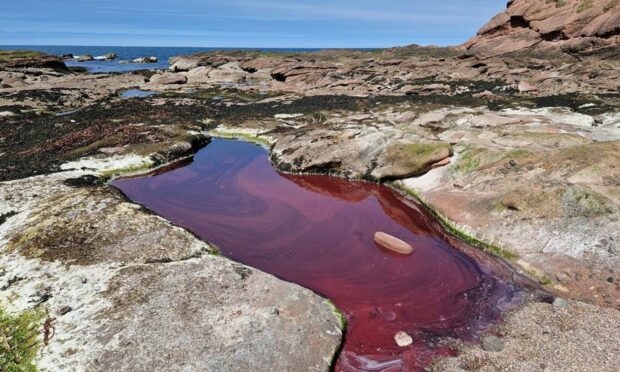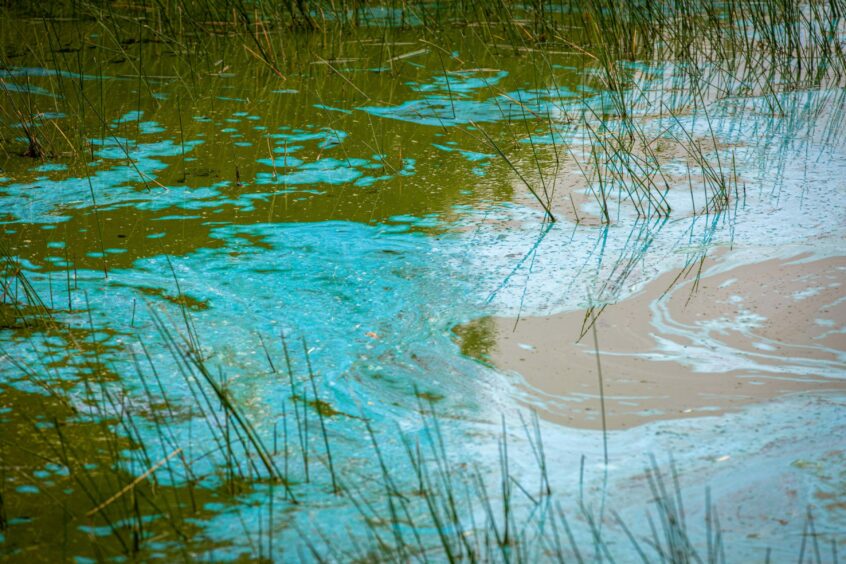Dog walkers are being urged to keep their pets away from strangely-coloured rockpools and algae covered lochs.
Brightly coloured algae – encouraged by the recent warm weather – has become a cause for concern in two council areas.
Several bright red rockpools have cropped up along a few locations on the Moray Firth coastline while blue-green algae has appeared on Loch Langabhat in South Harris.
Although algae is not always harmful, the toxins can cause illness in humans and severe sickness and even death in dogs.
Due to this, the Scottish Environment and Protection Agency (Sepa) and councils have warned members of the public to avoid contact.
Meanwhile, “oil globules” have also been reported on beaches in Uig and other beaches on the west coast of Lewis.
Western Isles Councils says they have been spotted around tide marks but have also been buried under a thin layer of sand and they will be monitored in the coming days.
Red rockpools have bad smell
Sepa said they believe the red rockpools in Aberdeenshire are caused by either a phytoplankton or algal bloom.
Aberdeenshire Council has asked members of the public to avoid these rockpools and to make sure dogs do not drink the water or swim in them.
The natural-occurring phenomenon has been spotted near the old pool at Portsoy, at the New Aberdour caves and to the west of Sandhaven.
A “nasty odour of decay” usually accompanies the condition.
This tends to be due to water in the pools being stagnant and a combination of warm weather, lack of rainfall and low tides.
To report a suspected bloom of algae, click here.
Algae can cause illness or even death of animals
On Loch Langnbhat, blue-green algae has appeared turning the water a blue-green or greenish-brown colour.
During calm weather, Western Isles Council said these algae can rise to the surface and form a scum. This can look like blue-green paint or jelly however, this colour can vary.
If the wind picks up, the scum can be blown easily and can accumulate on the shoreline.
Due to possible toxins, residents and their pets have been asked to avoid contact with the water or algae. Especially as it can prove deadly to animals.
Animal Health stated: “The toxins, which may be produced by the algae, are also poisonous to animals and can cause severe illness and death.
“Crofters and pet owners should therefore ensure that their animals do not have access to affecter water.”
The Department of Health said possible illnesses in humans include skin rashes, eye irritation, vomiting, diarrhoea, fever and pains in muscles and joints. In some cases, the sickness was severe.


Conversation